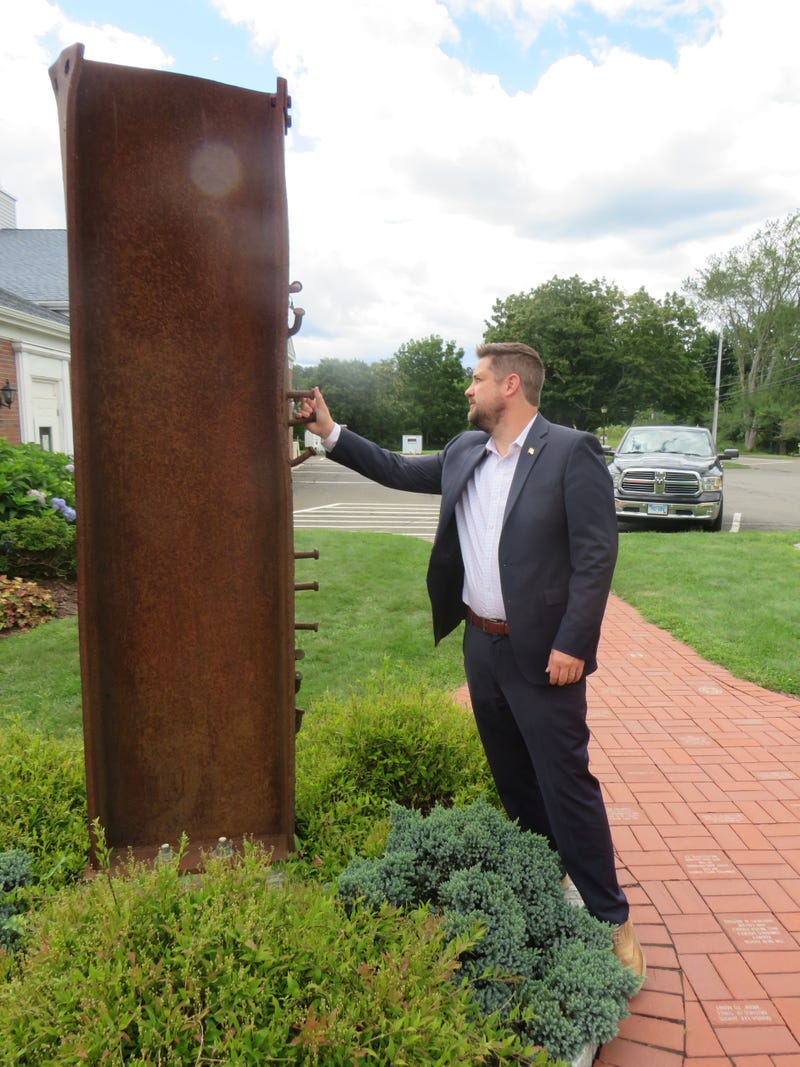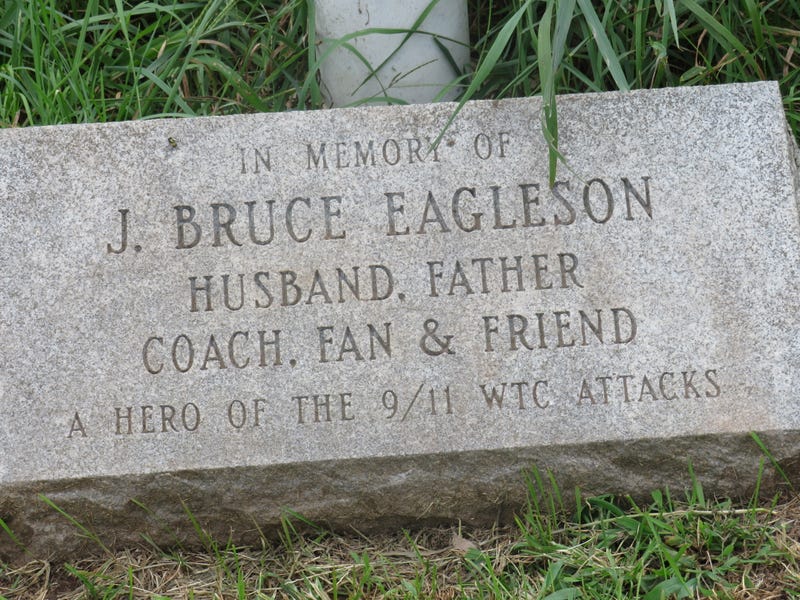
Different perspectives on the 20th anniversary of the 9/11 attacks, from some of those who recently spoke to WTIC:
Mary Fetchet of New Canaan, mother of 9/11 victim Brad Fetchet. She is executive director of VOICES Center for Resilience, which hosts the 9/11 Living Memorial. She was asked why she's devoted much of her life to aiding trauma victims:
"It's certainly not in memory of my son, but it's because of my son, Brad. When you lose somebody in a tragedy like that, they really become part of you. We found a journal that Brad had written, and on the front page it says, 'You can tell the character of a man from what he does for a man who can offer him nothing.' We've seen that time and time again. The thousands of people... artists, quilters, people that have created music, everyone that's been involved in the memorial. Our elected officials, talented clinicians and medical doctors, attorneys... all these people have stepped forward and helped us in some way."
Brett Eagleson, son of Bruce Eagleson, who died in the World Trade Center's South Tower. He showed a reporter two small, public monuments to his father:
"It's just nice to know that my dad is still present in the community. We've got a brick with his name on it here in Middletown. There's a flagpole at a baseball field where I played and where he coached me. So, it's nice to know that there are some permanent markers for him. We never recovered him... so, he doesn't really have a resting place. So, we consider these two places in Middletown to be his grave site."

Professor Matthew Warshauer, Ph.D. of Central Connecticut State University, who teaches the course "9/11 Generation:"
"This is the difficulty with 9/11. On the one hand, you do absolutely want to focus on the loss that those families have had to confront. At its most basic element, the story of 9/11 is a personal story. It is a tragedy, and we can't lose sight of that... But it also gets difficult, because the story is so big, and there are so many elements connected to it. And at 20 years, especially with what's happened in Afghanistan, we need to be not just willing, but we need to see it as a duty to look more closely at decisions that our nation has made, both good and bad, and to at least attempt to learn from it."
Retired U.S. Sen. Christopher Dodd (D-CT), whose daughter Grace was born on Sept. 13, 2001:
"My daughters (Grace, 19 and Christina, 16) I think have a far more of a hardened look at what may happen... (They) are willing to accept the notion that the world is a far less safe place than certainly I grew up believing it was. And with 9/11, Grace has asked about it over the years... and obviously if you were due on September 11th and arrived on September 13th, you have a great deal of interest in knowing what happened and how it happened."
Kenneth Williams, a retired FBI special agent who is now an investigator for the law firm Kreidler & Kreidler, which represents 9/11 victims' families in their lawsuit against Saudi Arabia for its alleged role in planning the attacks:
"It's an unsolved homicide case, and the fact that the FBI is not actively pursuing this as such is appalling, and I think every American should be screaming. Not only every American, people all over the world, because, let's face it, it's impacted the entire world. All our allies supported us in the War on Terror, many of their citizens died... alongside us, as a direct result of the attacks on September 11th."

